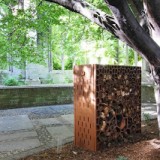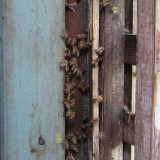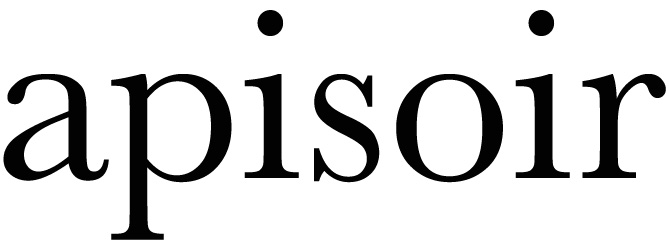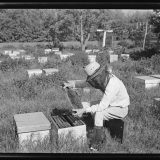
I had the privilege of attending Honey Love’s natural beekeeping conference this weekend and I hope to share some insights from the talks and conversations I had with other beekeepers, but I’m pressed for time this morning so let me just drop one tidbit that comes via Michael Bush. Bush mentioned that Cornell digitized the American Bee Journal from the years 1861 through 1900 as well as a lot of other old publications. Here’s an amusing an excerpt from advice column in the May 1900 issue of American Bee Journal:
Mr. Dadant:–Did you ever here of any one feeding whiskey to bees in honey, and is it true that it renders them bolder and causes them to try to rob other hives? About a week ago, a man who has three colonies of bees, told me that some strange bees were completely robbing one of his colonies. Today very probably the same bees were robbing one of mine, and I only have three. I stopt up the entrances, and that helped some, for my bees are quite strong.
I was told that when bees were fed whiskey in honey it makes them bold to rob other people’s bee. What is your opinion? ILLINOIS.
In the first place, one thing which we must establish before all others, is that the bees do not discriminate between the colonies which belong to their owner and other people’s bees. It looks as if it might be superfluous to mention this, but I have often heard the remark that Mr. So-and-So’s bees were robbing Mr. Somebody’s hives, just as if a man could “set” his bees onto another man’s apiary as bad boys “set” one dog onto another, or as some of our so-called civilized Christians organize a prize-fight. . .
I have never heard of strong drink being used in feeding bees, except in one instance. I remember reading in L’Apiculteur years ago, of an old time beekeeper having fed his bees with bread dipt in honey which had been mixt with a proportion of wine, to cure them of diarrhea early in the spring . . .
The beekeeper whose colonies are robbed by other bees, whiskey or no whiskey, can lay the blame on himself, and himself alone. A colony of bees in healthy condition and properly managed should fear nothing from robber bees, except by some accident beyond the control of the apiarist, such as the breaking down of combs by heat, or the upturning of the hive by wind or mischievous animals or human beings.
In this same issue, there’s an article about an attempt to reconcile the need to spray fruit trees with pesticide and the impact of those chemicals on bees. Another talk at the conference by Dr. May Berenbaum of Cornell, that I was only able to hear part of, looked at the history of the use of pesticides. Honeybees are a complex organism and their interaction with pesticides can often work in counter-intuitive ways, as Berenbaum showed in a study that proved that even fungicides, thought to be safe, can impact bee colonies. In over a hundred years of tinkering with chemicals and bees we’re still making stupid mistakes. In addition to that whiskey there’s a lot of other things we shouldn’t be dosing bees with.




My bees can beat your bees? This was funny.